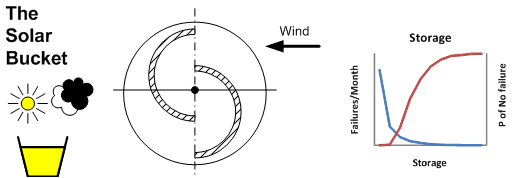The great thing about the internet is that you can find a large lump of iron whilst walking the dog and an hour later history unfolds. I found this object whilst following my dog into some bushes to prevent him doing something regrettable.
It is probably a water meter which was made by Glenfield and Kennedy in Kilmarnock, the location suggests that it might have been installed around 1910 (a guess). It seems that water passing through the device causes a reciprocating motion of a piston in a cylinder, a mechanism records the number of oscilations and this is scaled to indicate the cumulative water flow. At a guess the maximum flow rate was not high (the piping seems to be 1/2 inch internal diameter) and there would have been a noticable pressure drop across the meter. Maybe the occupants of the building were not too keen on bathing.
A few years back, the water company moved us onto a metered supply in place of a fixed tariff. The meter appears to use a small turbine and does not appear to drop the pressure of restrict the flow rate.
When it was announced that water meters were going to be installed, there were two reactions, the first was that bills were going to increase and secondly that a restriction on consumption was an infringement of liberty. Our own bill fell, this may not have been the case if all our children were still living at home, also we only use rain water on the garden. The second one has faded, but is a recurring theme.
Whilst I am interested in sustainability, I am not convinced that price and enforced constraint are effective tools for managing consumption. In theory, increasing resource prices should reduce consumption, however, the energy is inelastic, which is an economist's way of saying that a big increase in price does not result in a big drop in consumption. Those on low incomes resent high prices (children have to be washed and petrol may be needed to get to work) and those on high ones don't care. To complicate matters, the business model of energy companies is based on selling more product, although there seems to be increasing competition for market share. Changing this is a big challenge, one possibility is to move to a system which is based on the benefits of water, energy etc. rather than the volume supplied.
Subscribe to:
Post Comments (Atom)




No comments:
Post a Comment